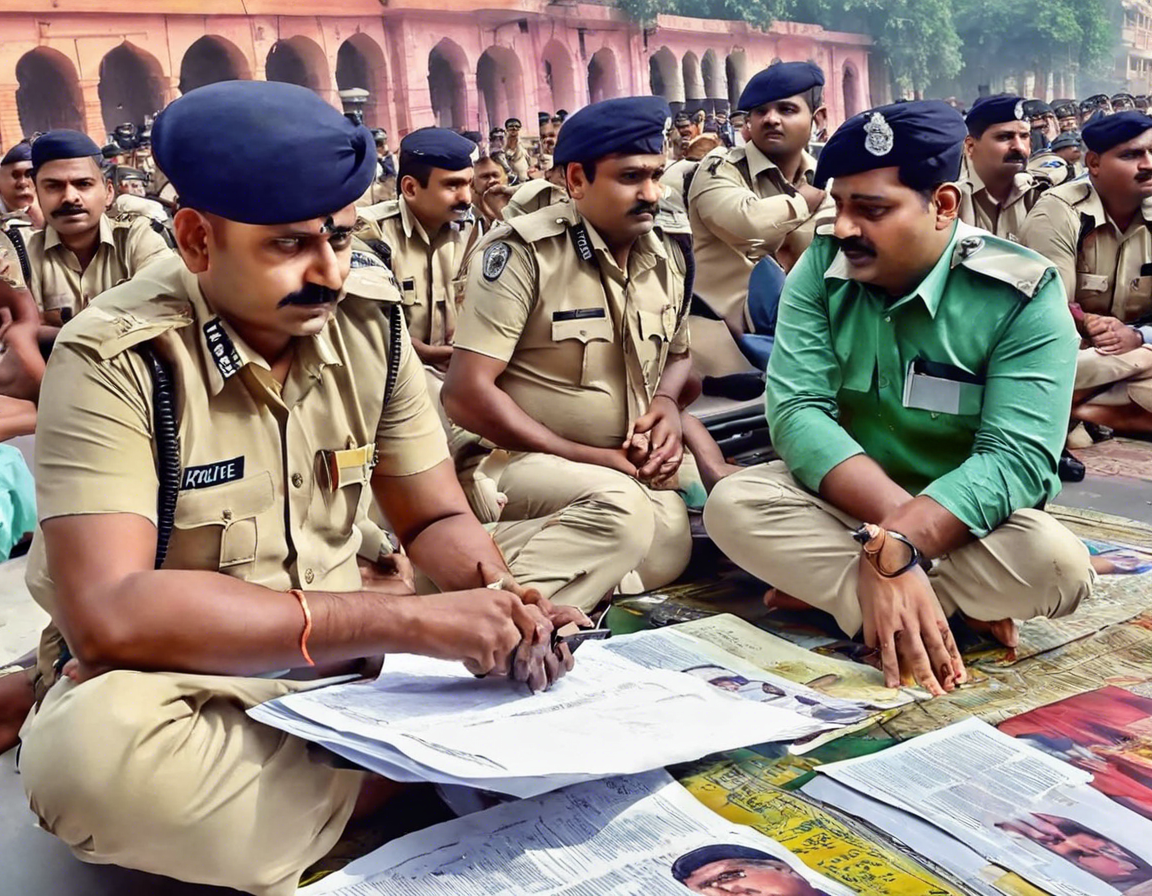The recent Uttar Pradesh Police Paper Leak Scandal of 2024 has sent shockwaves across the state, raising serious questions about the integrity of the recruitment process within the police department. The scandal has not only undermined the trust of the public in law enforcement agencies but has also highlighted the loopholes in the system that allow such malpractices to occur. In this detailed analysis, we will delve deeper into the UP Police Paper Leak Scandal, examining its implications and exploring possible solutions to prevent similar incidents from happening in the future.
Understanding the UP Police Paper Leak Scandal
The UP Police Paper Leak Scandal came to light when reports surfaced about the question paper for the recruitment exam being leaked prior to the scheduled date. This revelation sparked widespread outrage among aspiring candidates who had prepared diligently for the exam, only to discover that their efforts had been undermined by unfair means.
Timeline of Events
-
Leaked Question Paper: The initial reports indicated that the question paper for the UP Police recruitment exam had been leaked online, giving certain candidates an unfair advantage.
-
Investigation Launched: Following the uproar, the authorities launched an investigation to ascertain the extent of the leak and identify the individuals involved in the scandal.
-
Arrests Made: Subsequently, arrests were made in connection with the paper leak, including individuals who were allegedly responsible for obtaining and circulating the leaked question paper.
-
Repercussions: The scandal led to protests and demands for a thorough overhaul of the recruitment process to prevent such incidents in the future.
Implications of the Scandal
The UP Police Paper Leak Scandal has far-reaching implications, not only for the candidates who were affected but also for the credibility of the entire recruitment process. Some of the key implications include:
-
Loss of Trust: The scandal has eroded the trust of the public in the fairness and transparency of the recruitment process within the police department.
-
Waste of Resources: The time, effort, and resources invested by candidates in preparing for the exam have gone to waste, leading to frustration and disillusionment.
-
Impact on Merit: The leak has compromised the merit-based selection process, potentially allowing less qualified candidates to secure positions through unfair means.
-
Legal Ramifications: Those involved in the paper leak could face legal consequences, further tarnishing the reputation of the recruitment process.
Root Causes of the Scandal
To address the UP Police Paper Leak Scandal effectively, it is essential to identify and understand the root causes that allowed such a breach of integrity to occur. Some of the key factors contributing to the scandal include:
-
Lack of Security Measures: Inadequate security measures to safeguard the confidentiality of question papers made them vulnerable to leaks.
-
Corruption: Deep-rooted corruption within the system enabled unscrupulous individuals to manipulate the recruitment process for personal gain.
-
Lax Enforcement: Failure to enforce stringent guidelines and oversight mechanisms allowed for loopholes to be exploited by those intent on cheating.
Preventive Measures and Reforms
In the aftermath of the UP Police Paper Leak Scandal, there is an urgent need for reforms and preventive measures to restore the integrity of the recruitment process and prevent similar incidents in the future. Some of the key steps that can be taken include:
Enhanced Security Protocols
-
Digital Encryption: Implementing digital encryption techniques to secure question papers and prevent unauthorized access.
-
Randomization: Introducing randomization of question papers to ensure that each candidate receives a unique set of questions, minimizing the risk of leaks.
Transparency and Accountability
-
Independent Oversight: Establishing an independent oversight body to monitor the entire recruitment process and ensure transparency and accountability.
-
Whistleblower Protections: Providing protections for whistleblowers who come forward with information about malpractices and irregularities.
Technology Integration
-
Online Monitoring: Utilizing technology for real-time monitoring of exam centers to detect any suspicious activities or unauthorized communications.
-
Biometric Authentication: Implementing biometric authentication systems to verify the identity of candidates and prevent impersonation.
FAQs (Frequently Asked Questions)
1. What was the UP Police Paper Leak Scandal of 2024?
The UP Police Paper Leak Scandal of 2024 involved the leakage of the question paper for the recruitment exam, leading to allegations of unfair practices and compromising the integrity of the selection process.
2. What were the implications of the scandal?
The scandal resulted in a loss of trust in the recruitment process, wasted resources for candidates, compromised merit-based selection, and legal repercussions for those involved.
3. What were the root causes of the scandal?
The scandal was attributed to factors such as lack of security measures, corruption, and lax enforcement of guidelines within the system.
4. What preventive measures can be taken to avoid such scandals?
Enhanced security protocols, transparency, and accountability, as well as technology integration, can help prevent similar incidents in the future.
5. How can the integrity of the recruitment process be restored?
Implementing stringent security measures, ensuring transparency and accountability, and leveraging technology are crucial steps to restore the integrity of the recruitment process.
In conclusion, the UP Police Paper Leak Scandal of 2024 serves as a wake-up call for authorities to address the vulnerabilities within the recruitment process and uphold the principles of fairness, transparency, and meritocracy. By implementing robust reforms and preventive measures, the authorities can rebuild trust with the public and ensure that such incidents do not occur again in the future.
